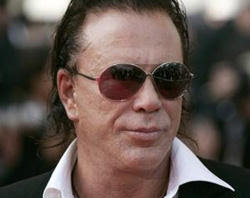 "Unplug yourselves…and look in the mirror. This is how God made you. We're not meant to experience life through a machine." Thus opens "Surrogates," an intriguing, inventive, satisfying, futuristic thriller, set in a time when people don't come out of their homes any more, but live every aspect of their lives (work and play) through their good-looking, real-life avatars or "surrogates." Surrogates are robots that are so life-like it's hard to tell them from their "operators," except that they're a little too perfect. Of course, some operators choose "Surrogates" very different from themselves, much like people today creating divergent online personas.
"Unplug yourselves…and look in the mirror. This is how God made you. We're not meant to experience life through a machine." Thus opens "Surrogates," an intriguing, inventive, satisfying, futuristic thriller, set in a time when people don't come out of their homes any more, but live every aspect of their lives (work and play) through their good-looking, real-life avatars or "surrogates." Surrogates are robots that are so life-like it's hard to tell them from their "operators," except that they're a little too perfect. Of course, some operators choose "Surrogates" very different from themselves, much like people today creating divergent online personas."Surrogates" repeats elements from "Invasion of the Body Snatchers," "Blade Runner," "I, Robot," "District 9," and "Wall-E," but is unique in that it is about real humans living vicariously, hooked up to "stem chairs"—super-sophisticated VR (virtual reality). Everyone uses surrogates except a rag-tag band of resisters who live on a run-down "reservation," led by "The Prophet." The status quo highly encourages use of surrogates because it is "safer," "cleaner," etc. The company that makes the surrogates has as its slogan: "Do what you want. Be what you want."
The history and lingo of this brave new world are quickly set up in the opening scenes, and we're ready to follow FBI agent Tom Greer (the well-cast Bruce Willis), on the trail of a brand-new kind of crime: two operators died when their surrogates got destroyed. But this is not supposed to be possible. Something is going radically wrong.
Amidst crime-solving and existential questions about what it means to be human, there is a moving love story between Tom and his wife who are both grieving the loss of their young son. Tom is rethinking his use of a surrogate while his wife is using hers to escape from life, and escape even from Tom. She says of her "surry": "This is who I am now." This is so realistically portrayed that it makes you think of those of us here and now who are holed up in homes and offices, addicted to or slaving away at an online existence, and perhaps acquiring a blurred sense of our own identity. "Surrogates" operators look rather pale and sickly. Real humans are disparagingly called "meatbags" (by operators speaking through surrogates: self-hatred, anyone?) It's chilling to watch the middle-aged, vulnerable, flesh-and-blood Tom out on the streets among the young, eerily-gorgeous, airbrushed, steely, powerful, slightly-mechanical, clinical, cold surrogates, and watch how they treat him (air of disdain). Much food for thought, she said, as she typed her movie review hunched over her glowing screen after many hours at her glowing screen….
Are "surrogates" a future possibility? In the film, surrogates are also used for war—something the U.S. military is already working on (we have "drone" planes bombing in Pakistan as we speak, robots that approach and diffuse bombs, and potential recruits training on video games such as "America's Army").
There was 1) one piece of "on the nose" dialogue, 2) one faulty continuity visual, 3) one big logic gaffe, and 4) one inexplicable device, but other than that, a very smart yarn with sharp dialogue and superb acting. It made me think of how pockets of people ARE choosing to "resist" the "online life" in its infancy. Christopher West (Mr. Theology of the Body) was recently interviewed on Nightline, but he couldn't watch himself because he doesn't have a TV. A friend called him and said: "Just go to a neighbor's house!" But alas, Christopher lives in Lancaster, PA. All his neighbors are Amish!!
OTHER STUFF:
--Theology of the body? The whole movie is quite literally a TOB movie!
--A bold, remarkable visual statement about true beauty at the end of this film.
--Gotta keep track of who's real and who's a surrogate, and then who's "operating" which surrogate when. But it's not THAT hard.
--Reminds me of the supertacular DCTalk futuristic music video "Breathe." Everyone walks around like zombies with oxygen masks on (in some kind of police state), until someone rips one off and realizes they can breathe and it's great and it's OK and they won't die.
--Takes place in Beantown, USA! (Specifically "Dawchestah")
--SPOILER ALERT! 1) "If they killed my son looking for me—then it's my fault!" 2) Miles Strickland's body suddenly disappears as it's supposed to be burning on the bier 3) How the hey is the "rebirth of humanity" supposed to happen if everyone on the planet gets killed? 4) Why didn't the surrogate just untie the portly human computer geek and let HIM type in the codes and stuff at the end, instead of having him dictate it to the surrogate?














